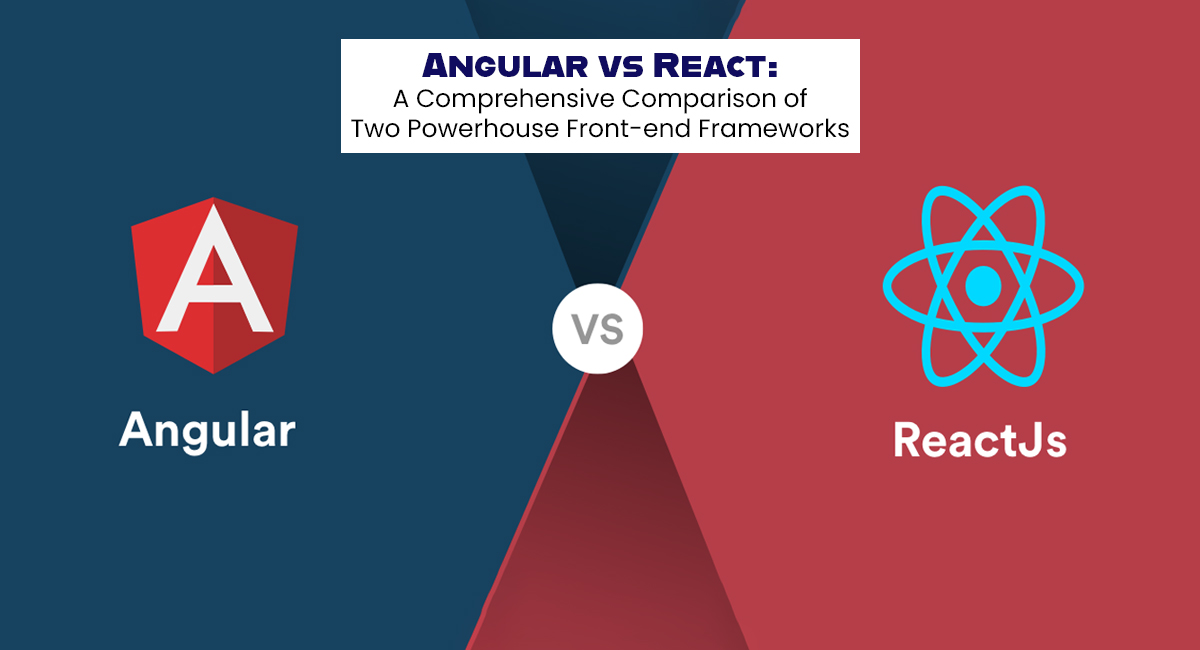
Angular vs React A Comprehensive Comparison of Two Powerhouse Front end Frameworks
Angular vs React: A Comprehensive Comparison of Two Powerhouse Front-end Frameworks
In the ever-evolving landscape of web development, choosing the right front-end framework is crucial for building powerful and efficient applications. Two of the most popular options available today are Angular and React. Both frameworks have their own strengths and features that make them appealing to developers. In this article, we will dive deep into a comprehensive comparison of these two powerhouse front-end frameworks: Angular and React.
- Performance and Speed
When it comes to performance, both Angular and React have their own approaches. Angular follows a more opinionated structure, providing a full-fledged framework that includes everything you need to build complex applications. On the other hand, React is a lightweight library that focuses on the view layer, giving developers more flexibility and control over their code.
- Flexibility and Modularity:
Angular and React have different philosophies when it comes to flexibility and modularity. Angular follows a modular approach, making it easier to manage large-scale applications with its built-in features such as dependency injection, declarative templates, and powerful data binding. React, on the other hand, allows developers to compose applications using reusable components, making it highly flexible and suitable for smaller projects or specific parts of larger applications.
- Learning Curve and Community Support:
When evaluating front-end frameworks, it's important to consider the learning curve and the support available from the developer community. Angular has a steeper learning curve due to its comprehensive nature and the use of TypeScript, a statically typed superset of JavaScript. However, Angular has a large and active community that provides extensive documentation, tutorials, and support.
React, on the other hand, has a more gentle learning curve, especially for developers already familiar with JavaScript. It has gained significant popularity in recent years, resulting in a vast community of developers who actively contribute to its ecosystem. The React community provides numerous resources, including a wide range of libraries, tools, and online forums.
- Scalability and Large-Scale Applications:
When it comes to building large-scale applications, Angular's opinionated structure and extensive set of features make it a powerful choice. Angular's built-in support for features like routing, form validation, and state management simplifies the development process and provides a solid foundation for scalable applications.
React, on the other hand, can also handle large-scale applications effectively, but it requires additional third-party libraries and tools to handle features like routing and state management. React's flexibility allows developers to choose the best libraries and tools based on their specific project requirements.
- Developer Productivity and Tooling:
Both Angular and React offer a range of powerful tools and libraries to enhance developer productivity. Angular provides a comprehensive CLI (Command Line Interface) that automates common development tasks, such as project scaffolding, testing, and deployment. It also offers robust development tools like Angular Material for UI components and RxJS for reactive programming.
React, on the other hand, offers a more lightweight development experience with its focus on the view layer. It provides a powerful developer tool called React Developer Tools, which allows developers to inspect and debug their components. React's ecosystem offers a wide variety of libraries and tools for specific use cases, allowing developers to choose the ones that suit their needs.
In conclusion, both React and Angular are powerful front-end frameworks with their own unique features and strengths. Angular provides a comprehensive and opinionated approach, making it suitable for large-scale applications that require a structured and feature-rich framework. React, on the other hand, offers flexibility and a lightweight development experience, making it ideal for smaller projects or specific parts of larger applications. Ultimately, the choice between Angular and React depends on the specific requirements of your project and your team's expertise. It's essential to evaluate factors such as performance, flexibility, scalability, learning curve, and community support before making a decision. By considering these factors, you can choose the framework that best aligns with your project goals and maximizes your development efficiency.



